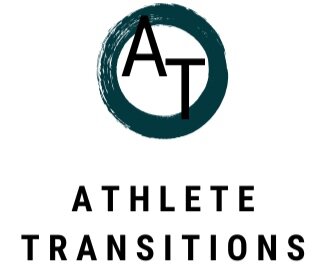
Fitness and Nutrition
Fitness and Nutrition in Post-Sport Life
The transition into retirement can be one that not only impacts us psychologically, but also physically. Often, we have dedicated so much time to one sport that we have not had time to engage in other types of physical activity. Thus, upon retirement it may be challenging to find ways of staying physically active. Additionally, if you have sustained injury or your body is worn down due to long and hard physical careers, this can create frustration and pain in engaging in physical activity (Cecić Erpič, Wylleman, & Zupančič, 2004; Kerr & Dacyshyn, 2000).
Finding new ways of staying active is not only important for physical health, it also is important for our psychological well-being and it can aid us in developing new social networks and expanding our identities (Lally, 2007; Smith & McManus, 2009; Warehime, Dinkel, Bjornsen-Ramig, & Blount, 2017). Experiencing news types of physical activity can deliver a positive relief from stress, while setting new physical goals provides something to be excited about. Research demonstrates that both of these things can help us with the shift in our identity and help to promote a positive shift into life after sport (Lally, 2007).
Fitness Exploration
Regularly engaging in physical activity has been shown to have numerous benefits to health and psychological well-being. Physical activity can help reduce stress levels, while providing an opportunity to explore new activities that boost self-esteem and self-worth. Setting new fitness goals as we move into post-sport life has been shown to help athletes cope with the loss of identity and to better cope with the psychological challenges that accompany this transition (Lally, 2007; Warehime et al., 2017).
Nutrition and Body Image
The shift into post-sport life is one that is accompanied by changes to our daily routines, our social networks, our identity, as well as our body shape, weight and eating habits (Plateau, Petrie, & Papathomas, 2017). This transition requires a period of body retraining and recalibration. Athletes need to relearn how to eat intuitively by listening to the physiological cues that tell us when we are hungry and when we are full, rather than eating to fuel and adhering to performance diets (Plateau et al., 2017).
Depending on the sport competed in, the transition into post-sport life may be accompanied by struggles with changing body image and body weight, which can increase the likelihood of developing dysfunctional eating patterns. This transition can result in feelings of distrust for food and the adopting of diets that limit certain food groups in an attempt to maintain body image (Kerr & Dacyshyn, 2000). It is important to develop a healthy relationship with food and eating in order to maintain both physical and psychological well-being. This is especially important if an athlete suffers from acute injuries and joint damage that limits their ability to engage in physical activity (Stellefson, Wang, Apperson, Bopp, & Zhang, 2019).
References:
Erpič, S. C., Wylleman, P., & Zupančič, M. (2004). The effect of athletic and non-athletic factors on the sports career termination process. Psychology of Sport and Exercise,5(1), 45-59. doi:10.1016/s1469-0292(02)00046-8
Kerr, G., & Dacyshyn, A. (2000). The retirement experiences of elite, female gymnasts. Journal of Applied Sport Psychology,12, 115-133. doi:10.1080/10413200008404218
Lally, P. (2007). Identity and athletic retirement: A prospective study. Psychology of Sport and Exercise,8(1), 85-99. doi:10.1016/j.psychsport.2006.03.003
Plateau, C. R., Petrie, T. A., & Papathomas, A. (2017). Learning to eat again: Intuitive eating practices among retired female collegiate athletes. Retrieved from https://www.ncbi.nlm.nih.gov/pubmed/27715475
Smith, J. L., & McManus, A. (2009). A review on transitional implications for retiring elite athletes: What happens when the spotlight dims? The Open Sports Sciences Journal, 1(1), 45–49. https://doi.org/10.2174/1875399X00801010045
Stellefson, M., Wang, M. Q., Apperson, A., Bopp, T., & Zhang, L. (2019). Health promotion and chronic disease prevention after the game ends: The emerging role of certified health education specialists in wellness coaching for retired college student-athletes. American Journal of Health Education, 50(6), 339–343. doi: 10.1080/19325037.2019.1662347
Warehime, S., Dinkel, D., Bjornsen-Ramig, A., & Blount, A. (2017). A qualitative exploration of former college student-athletes’ wellness. Physical Culture and Sport Studies and Research,75(1), 23-34. doi:10.1515/pcssr-2017-0018



